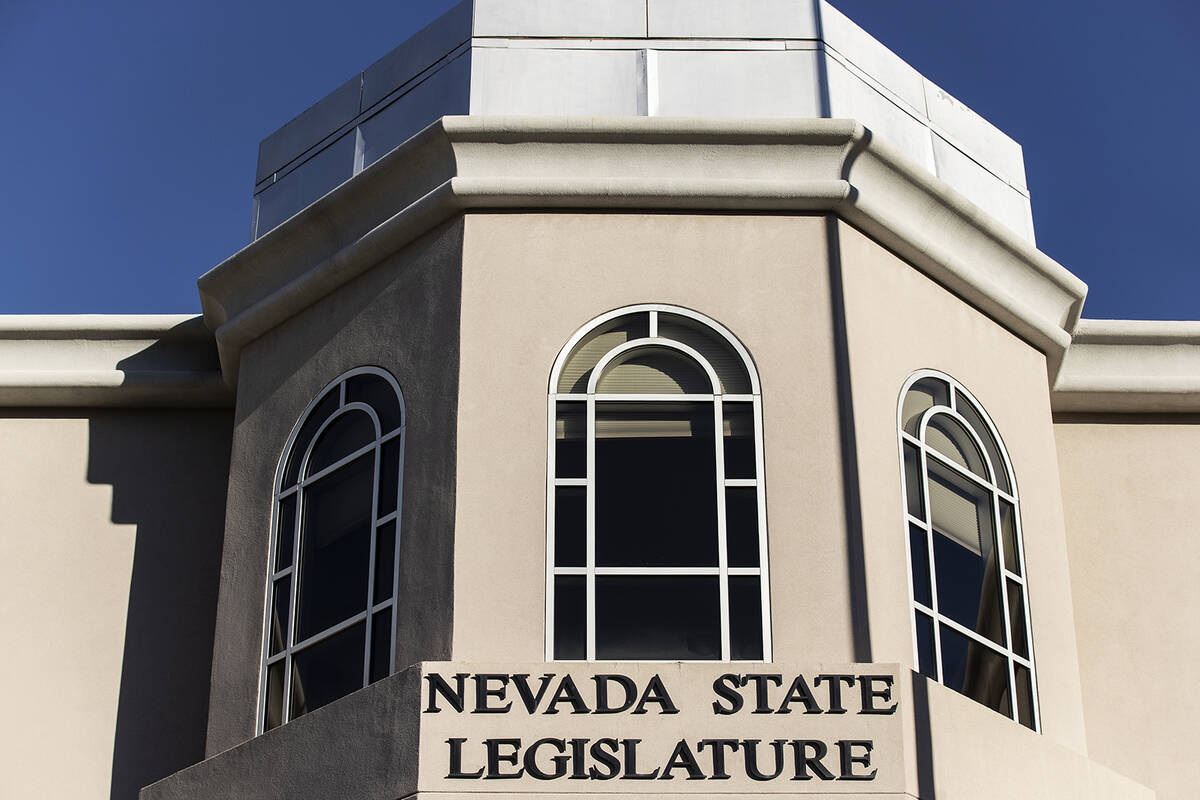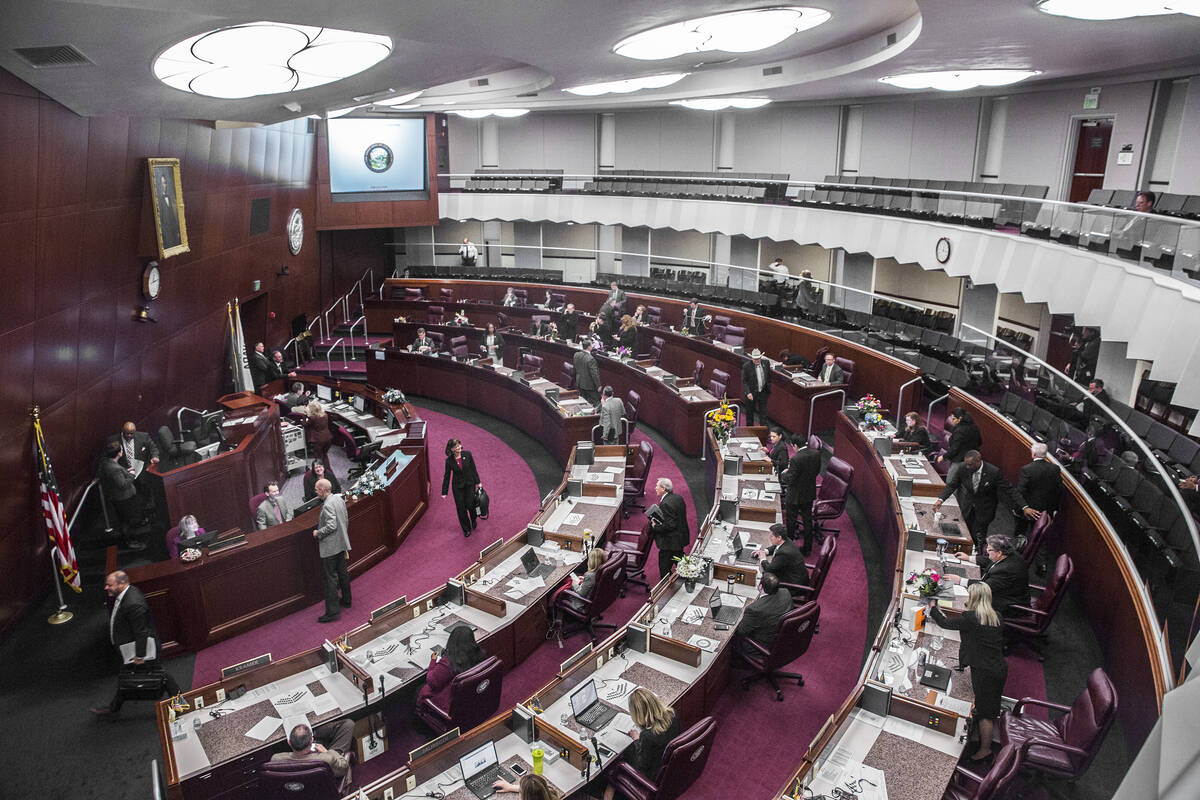Lawmakers to consider changes to Nevada’s election processes
Nevada lawmakers will consider increasing filing costs for primary presidential candidates next year and allowing individual, less populous counties to establish their own office of registrar of voters to lighten workloads.
On Friday, the bipartisan state Joint Interim Standing Committee on Legislative Operations and Elections forwarded the proposals for bill drafting.
The 2025 Legislative Session kicks off in February, and the proposals could still change as they move through the process.
Under one proposal, candidates of the two major political parties would need to pay $1,000 to appear on presidential preference primary ballots.
Democratic and Republican campaigns currently don’t need to pay anything, while independent candidates pay $250, Mark Wlaschin, deputy secretary of state for elections, told lawmakers.
The $1,000 fee would be comparable to other states such as Kentucky and New Hampshire that are “on the lower end” in comparison to what other states charge, Nev. Sen. James Ohrenschall said.
Chief Deputy Secretary of State Gabriel Di Chiara told the committee that the office was concerned with the “flood of people” appearing on ballots sent across the state, incurring additional election-related costs.
The monetary investment would ensure that candidates have “skin in the game,” he said.
Independent candidates would continue paying the $250 fee since they have to gather thousands of signatures to make it on the ballot, Di Chiara said.
Additional registrar of voters offices
Under current law, only counties with more than 100,000 residents can run their own registrar of voters offices, which excludes all but Clark and Washoe counties.
Registrars at rural counties, however, wear many hats with limited pay, officials said.
“I am the clerk, I am the recorder, I run the elections, I am the public administrator, and I am the marriage notary,” William “Scott” Hoen, Carson City’s clerk-recorder, told the committee earlier this year.
He added: “I only have two and a half full-time people plus myself running the election, and it is a challenge, but we step up. We have a lot of things going on at the same time.”
Amy Burgans, Douglas County’s clerk-treasurer, echoed Hoen.
“We have the clerk’s office, the treasurer’s office, and elections that I oversee,” she said, estimating that she spends 90 percent of the time working elections. “It is a monumental task. It is a lot.”
Other bill proposals
Other proposals green-lit on Friday included a bill that would allow “a cured signature to become the voter’s signature on file unless the voter affirmatively declines such action.”
As automatic registration expands, the bill would also require the secretary of state’s office, rather than the counties, to send notices informing registered voters that their records need clarification, such as party affiliation, Wlaschin explained.
The returned post cards would still go to local election officials, he said.
“This does not alter or change, or give the office of the secretary of state the authority to register voters,” Wlaschin said.
Another proposal bill would allow former felons to become election workers. Currently, people who have been convicted of fraud or theft are not allowed to work elections, said Ohrenschall, the committee’s chair.
Republicans Sen. Heidi Seevers O’Gara and Assemblyman Gregory Hafen voted against the measure, and expressed concerns about allowing people convicted of fraud or a violent crimes from working elections.
Wlaschin said that the intent of the bill is “to not be restrictive in any way, shape or form,” noting that the scope could change as the proposal is further debated.
The committee also is aiming to resurrect vetoed Assembly Bill 246 from the 2023 Session, which sought to expand access to voting materials in other languages.
Contact Ricardo Torres-Cortez at rtorres@reviewjournal.com.


















